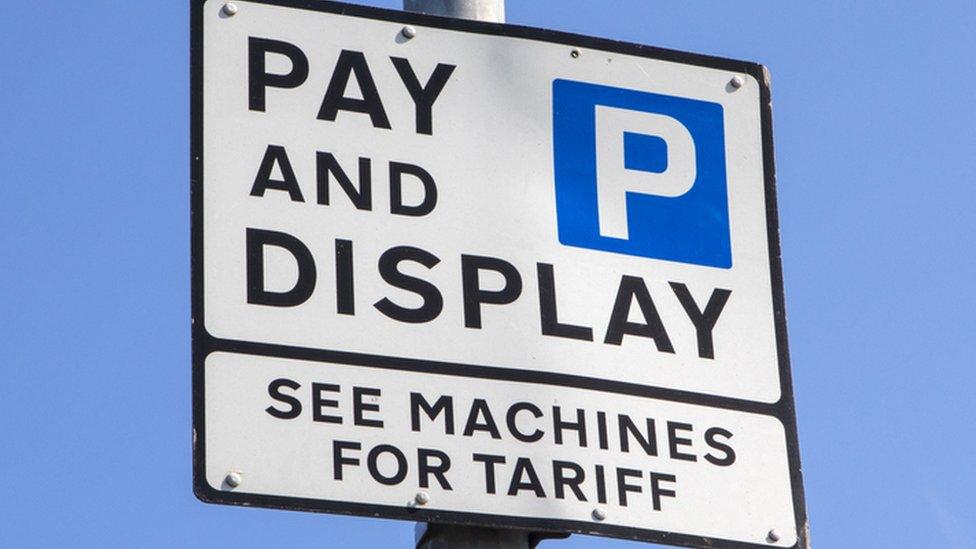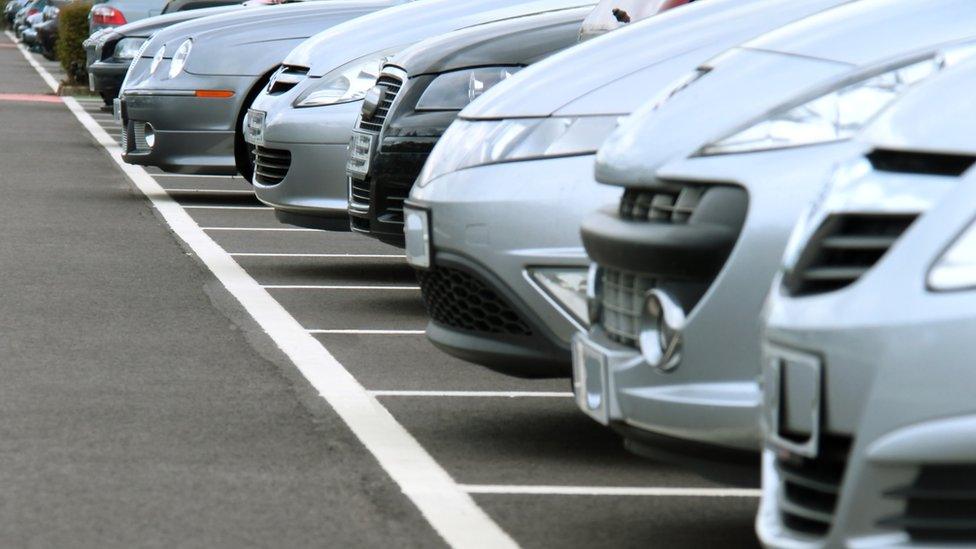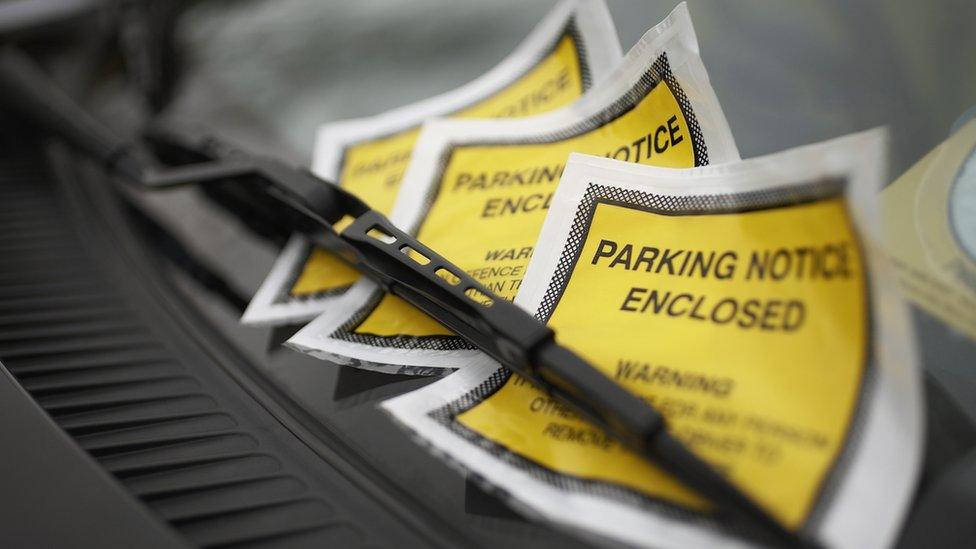Parking charges could make £1bn for councils, study says
- Published

Councils in England could make a record surplus of £1bn from parking charges and penalties this year, a study says.
An analysis of budgets commissioned by the RAC Foundation found authorities expect to make a total surplus of £913m from parking activities in 2019-20.
But it found the amount made in the last three years was underestimated.
Councils point out surplus money from parking must be spent on local transport. Westminster council had the largest estimated surplus of £72.1m.
This was followed by five other London councils - Kensington and Chelsea (£36m), Camden (£28.3m), Islington (£25.9m), Wandsworth (£25.9m) and Hammersmith and Fulham (£25.6m).
The study examined budget figures provided by councils to the Ministry of Housing, Communities and Local Government.
Of the 343 councils in the study, 278 said they expected to record a surplus from parking for the current financial year.
Some 65 councils said they were preparing to break even or incur a loss, the research said.
The highest budgeted surplus outside of London was Brighton and Hove (£24m) in seventh place, with other authorities in the top 20 including Bournemouth, Christchurch and Poole (£13.7m), Bristol (£12.5m), and Birmingham (£12.4m).
RAC Foundation director Steve Gooding described £1bn as "quite a windfall from a service that is intended to be all about managing traffic".

Martin Tett, a spokesman for the Local Government Association, said councils were "on the side of motorists" but must "strike a balance" when setting parking policy to ensure "there are spaces available for residents, high streets are kept vibrant and traffic is kept moving".
He added any income raised through on-street parking charges was spent "on running parking services", while surplus was "only spent on essential transport projects" such as solving the roads repair backlog.
- Published27 June 2019

- Published3 June 2019
